The format of the Democratic presidential candidates' town hall meeting Monday night was different from that of a debate, but the flavor was much the same, with the candidates offering familiar talking points and keeping the tone largely civil.
Bernie Sanders, Martin O'Malley, and Hillary Clinton, in that order, each appeared individually before an audience at Drake University in Des Moines, taking questions from audience members and from CNN's Chris Cuomo. The questions ranged over a variety of issues -- the economy, foreign policy, electability, and social issues, including LGBT rights.
Brian Carlson, a Drake student, asked O'Malley what he'd do to assure LGBT equality, pointing out that even with equal marriage rights, there is action needed to prevent discrimination in jobs, housing, and other areas. "Everything in my power," answered O'Malley, who has been mayor of Baltimore and governor of Maryland.
He didn't get into specifics, such as the Equality Act pending in Congress, but he did note that when he was governor, Maryland became one of the first states to enact marriage equality (in 2012) and that it also adopted a law banning discrimination based on gender identity.
Clinton brought up the issue herself when audience member Elena Dietz asked if reducing income inequality would be an ongoing priority, for her, as Sanders has promised it would be for him. Clinton responded that she'd address all types of inequality, including inequality based on racism, sexism, and homophobia.
She returned to this theme later, saying she was proud of her record as secretary of State in advocating for women's rights, gay rights, and religious freedom around the world.
Sanders, the junior U.S. senator from Vermont, got a question from the audience about his dismissal of the Human Rights Campaign and Planned Parenthood as "establishment" organizations after they endorsed Clinton. He replied that his statement wasn't particularly graceful and that he has great respect for the work both organizations do.
Also, when asked if he'd be as effective an advocate for women's concerns as a female president, he cited his long record of support for abortion rights and equal pay for equal work, and said his economic proposals, such as raising the minimum wage, would likely help women even more than men. (All the Democratic candidates support raising the minimum wage.)
Economics received much attention at the event, with an audience member asking Sanders, who describes himself as a "democratic socialist," to define and elaborate on that term.
"What democratic socialism means to me is that economic rights, the right to economic security, should exist in the United States of America," Sanders said, adding that it's about "creating a government that works for all of us, not just a handful of people on the top." He again decried the influence of corporate campaign contributors, this time not focusing on Clinton, whom he'd criticized for that, but saying that's one thing that keeps Congress from adopting progressive policies.
He said he would make sure that corporations and wealthy individuals would pay their fair share of taxes in order to fund the programs he supports, such as tuition-free college education.
He also said that while his plan for government-run, universal, single-payer health insurance would require a tax increase, those seeing their taxes go up would realize a net savings, as they'd no longer be paying premiums to private insurers.
Clinton and O'Malley both continued to oppose the single-payer approach, saying they would build on the progress made by the Affordable Care Act, a.k.a. Obamacare, which has resulted in lowering the number of uninsured Americans while maintaining a role for private insurance.
On economics, O'Malley called himself a believer in "fair-market American capitalism," but he agreed with Sanders that there's too much concentration of corporate power and that the middle class needs to be strengthened. For one thing, he said, it needs to be easier to join a labor union.
Clinton touted the economic prosperity the nation saw when her husband, Bill, was president, and she told a college-age audience member, "I've been on the front lines of change and progress since I was your age." She also noted her efforts for health care expansion during her husband's administration.
Asked by Cuomo if she was surprised to be in a close race against a "democratic socialist," she laughed and said, "Look, it's a great country. Despite what one of the Republicans says. And we are all, on the Democratic side, having a spirited debate." And unlike with the Republicans, she said, that debate has focused on issues rather than personal attacks.
Highlighting differences between the candidates, Cuomo asked Sanders about a Clinton campaign ad, touting her broad experience, including on foreign policy, and he responded that he is just as capable in this regard. The key foreign policy issue in recent history, he said, was whether to go to war with Iraq, something he voted against and Clinton for, although she has apologized for that vote.
"Experience is important," Sanders said. "But judgment is also important."
Also on foreign policy, audience member Richard Goodson asked Clinton to rate herself as an interventionist or noninterventionist, on a scale of 1-10. She declined to pick a number, but she said she would always make military invention a last resort and favor diplomacy to settle international conflicts, even if it sometimes moves slowly.
Another audience member asked Clinton how she'd deal with Benghazi going forward, a reference to the terrorist attack on the U.S. diplomatic mission in Benghazi, Libya, in 2012, which left Ambassador Chris Stevens and three other Americans dead. It has been a major focus of Republican criticism of Clinton's performance as secretary of State, and of extensive Republican-led investigations.
Clinton responded that Benghazi remains an issue only because Republicans want to keep it an issue, and that she has been totally forthcoming about security at the mission and other matters related to the attack. No new information came out of the investigative committee's marathon hearings on the attack, she said, because there was no new information.
There were a few potentially uncomfortable moments for the candidates. For Sanders, it was a question about his age -- he will turn 75 in September, so if he's elected president in November, he'd be the oldest ever elected. When Cuomo said Sanders was 74 going on 75, the candidate replied, "So are you!" The Vermont senator said he's in good health and would release his medical records before next Monday's Iowa caucuses.
At those caucuses, the first-in-the-nation vote for presidential preferences, people meet to discuss the matter rather than casting a secret ballot. If any candidate gets less than 15 percent support in a caucus group, that support has to go to one of the candidates with a higher percentage. Cuomo asked the low-polling O'Malley what he'd ask his supporters to do in that case. O'Malley declined to pick either Sanders or Clinton, though, saying his supporters should "hold strong at your caucus, because America's looking for a new leader."
Cuomo's closing question to Clinton is what former president she most admires. With apologies to both, she picked neither her husband nor President Obama, whom she served as secretary of State. Her choice: Abraham Lincoln. He faced the greatest challenges, she said, and handled many things at once: While leading the nation in the Civil War, he was also overseeing the construction of the transcontinental railroad and setting up land-grant colleges. She also invoked his line about "the better angels of our nature," saying the nation needs to summon those better angels and agree to disagree civilly.
Watch a clip of each candidate below, and find more at CNN.com.

































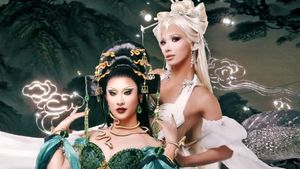
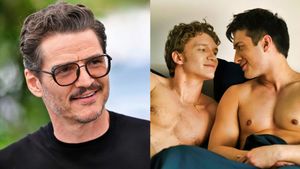







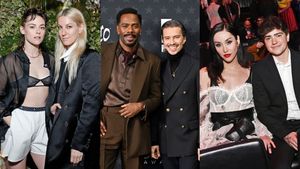

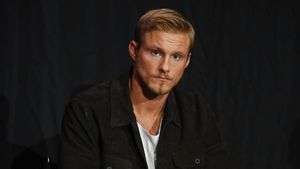















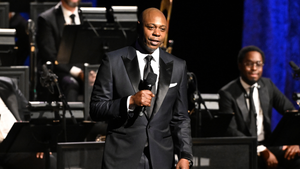

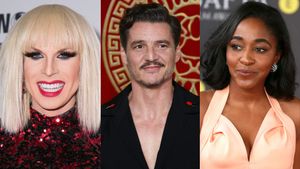



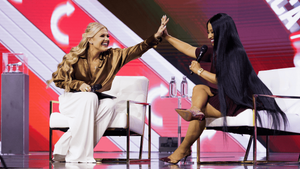
Charlie Kirk DID say stoning gay people was the 'perfect law' — and these other heinous quotes